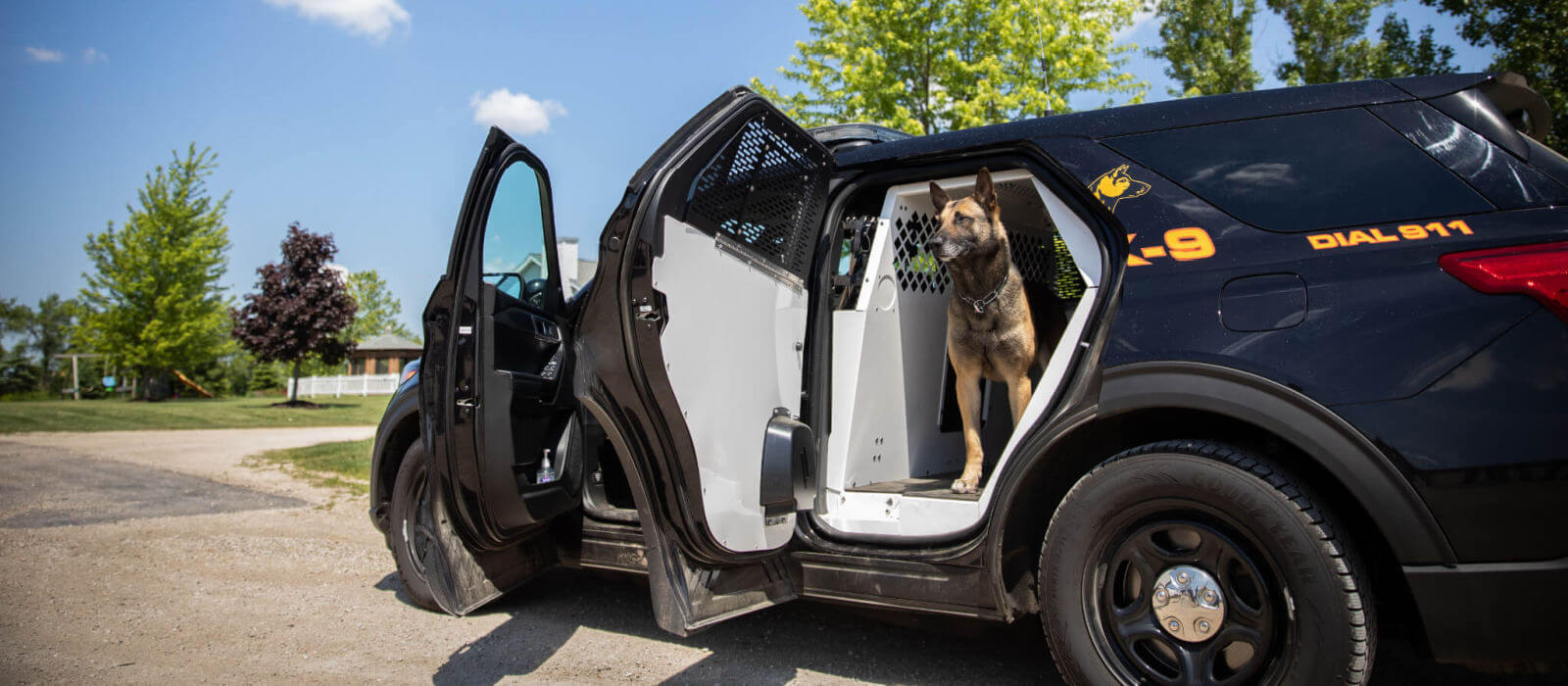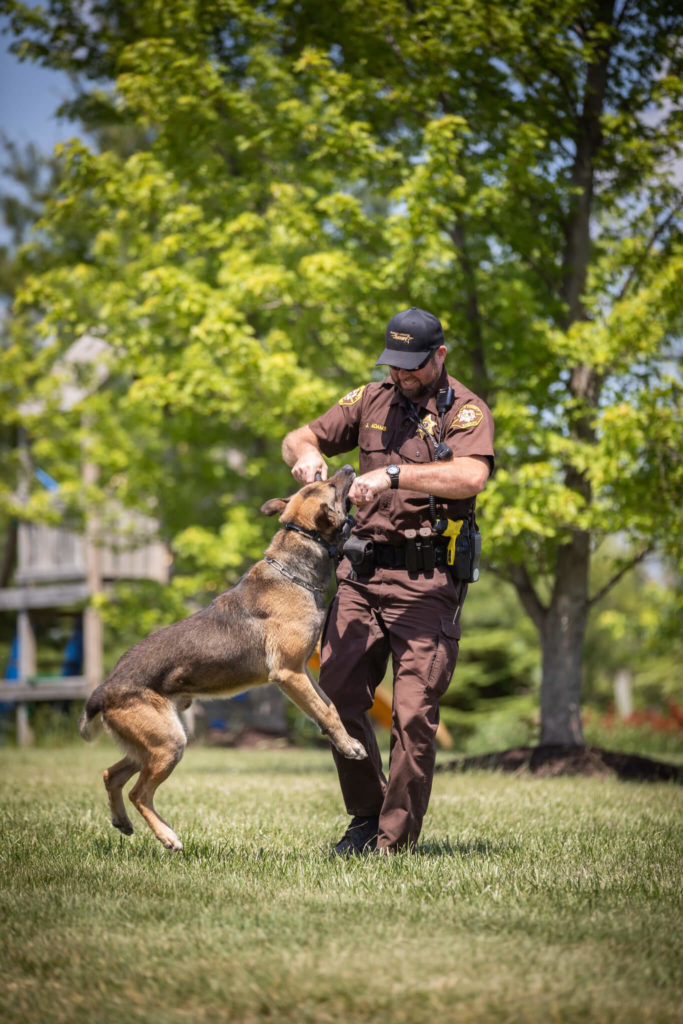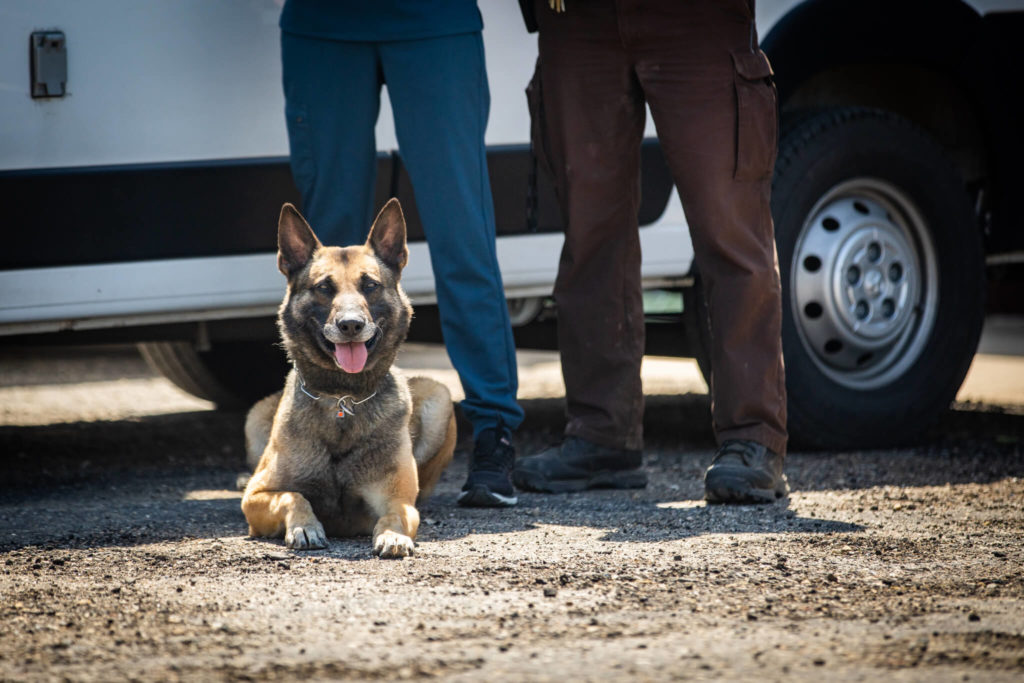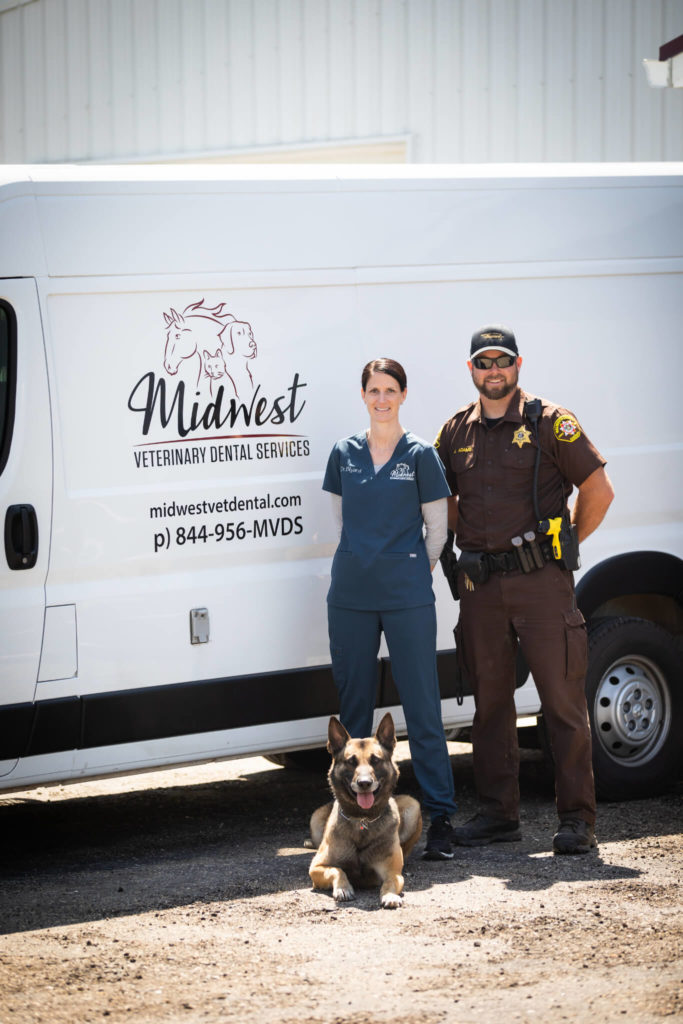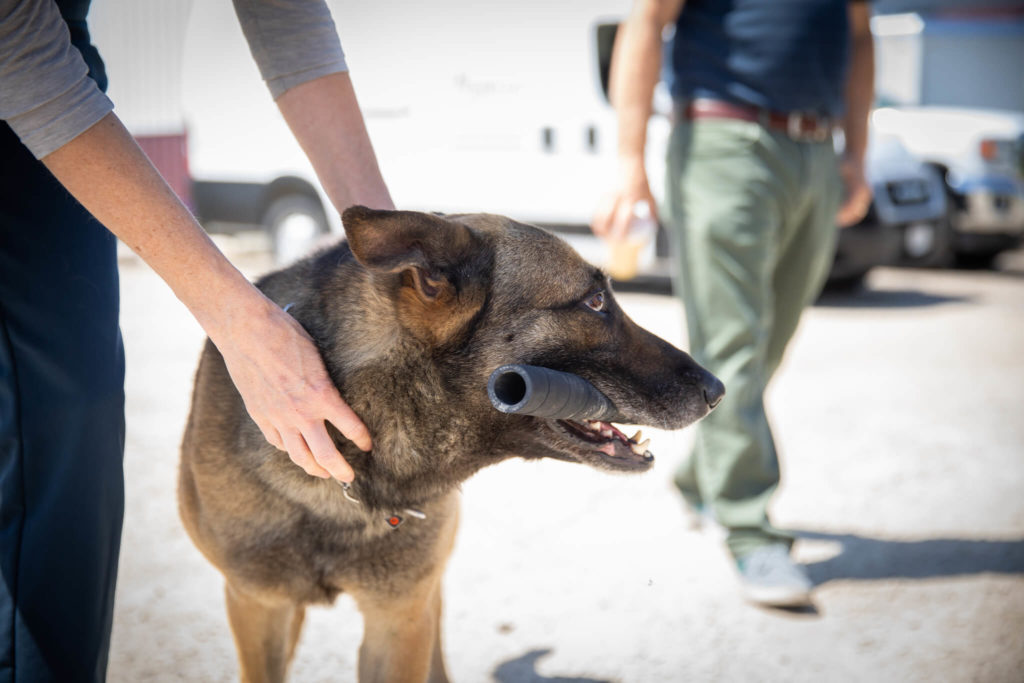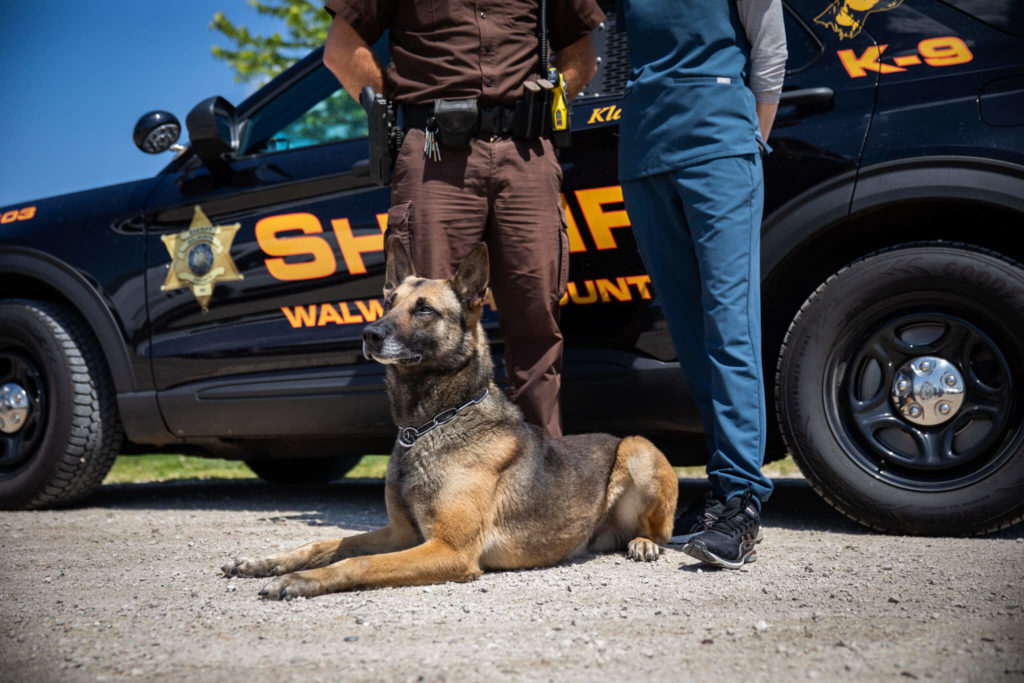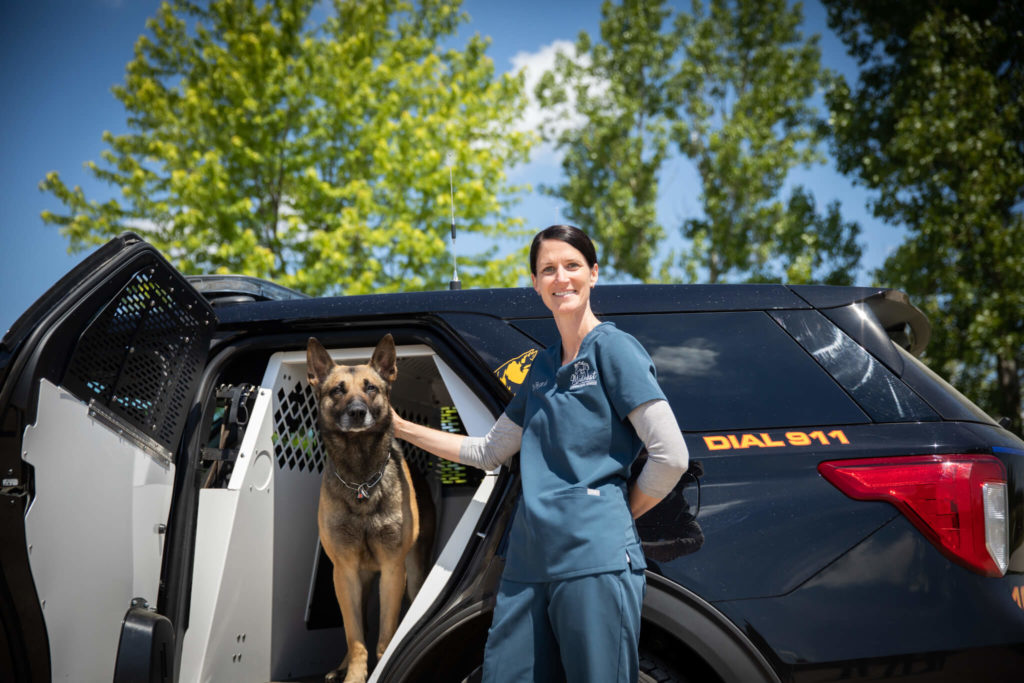
Maintaining oral health in working dogs is an important part of their routine care
Dr. Karin Bilyard has 15+ years of experience treating military and civilian working dogs. She has co-authored a working dog dentistry textbook chapter, consults on dental cases throughout the Department of Defense, Special Operations Groups, and advises/trains veterinary officers on working dog dental diseases and treatment.
Dr. Bilyard is committed to teaching handlers and owners how to identify dental conditions early so that these valuable K9 partners maintain certification and stay fully operational throughout their career.
Common oral conditions in Working Dogs
Working dogs hide pain. They will continue to eat and perform their tasks when suffering from acute or chronic dental disease. Tooth trauma is painful, decreases performance, and requires treatment. Providing proper oral care for your canine partner will build a reliable team and optimize performance.
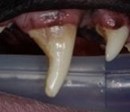
Tooth Wear (Abrasion)
Working dogs are prone to tooth wear due to excessive chewing of metal objects (bowl, fencing), patrol work, and toy rewards.
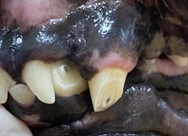
Fractured Teeth
Working dogs have a higher prevalence of tooth fractures due to their training, housing, behavior, and aggressive nature of work. If left untreated, these teeth cause pain, develop infection and the tooth will eventually die.
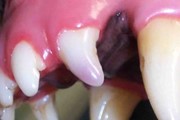
Discolored Teeth
Discolored teeth occur from blunt trauma without fracture the crown. Trauma to the pulp causes severe pulp inflammation and pulp necrosis. These teeth initially appear pink in color and eventually turn purple, gray, or tan.
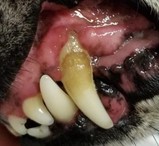
Periodontal Disease
Plaque and calculus formation leads to inflammation, gingival recession, and eventual bone loss. Once the bone surrounding the tooth is lost, the prognosis for saving the tooth is poor.
Treatment of common conditions
The goal of treatment for working dogs is always to preserve the functionally important teeth while ensuring a comfortable and pain-free mouth.
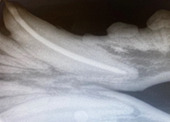
Root Canal
Root canal therapy of a fractured tooth is performed on a working dog to preserve the tooth structure thus allowing a full bite and return to duty the following day.
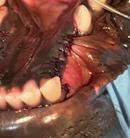
Extraction Therapy
Extraction of a fractured tooth is performed on a working dog when a root canal is not an option, or the fracture has damaged a majority of the crown. Working dogs generally return to duty 10-21 days after extraction therapy.
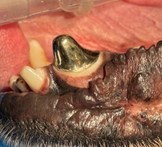
Crown Therapy
Crown therapy (metal capping) is indicated to restore tooth structure and protect the tooth from additional trauma. Crown therapy is highly recommended for teeth that have received root canal therapy to withstand the bite forces generated by working dogs.
Request a small animal appointment
Providing routine periodontal treatment is key to ensuring a quality life for your pet. We are here to help provide the needed services to prevent and treat this disease.
Routine Periodontal Treatment
Pediatric Dentistry
Oral Surgery
Oral Disease Management
Periodontics
Restoration & Endodontics

